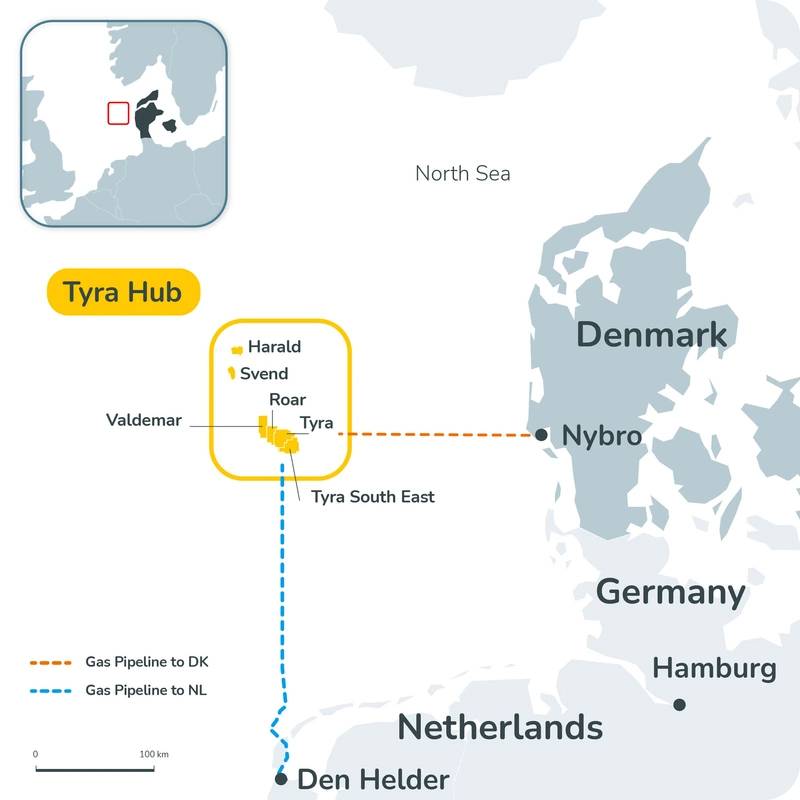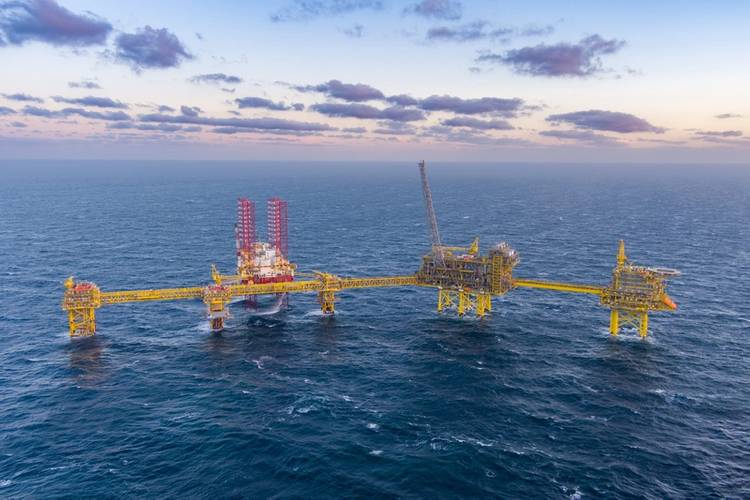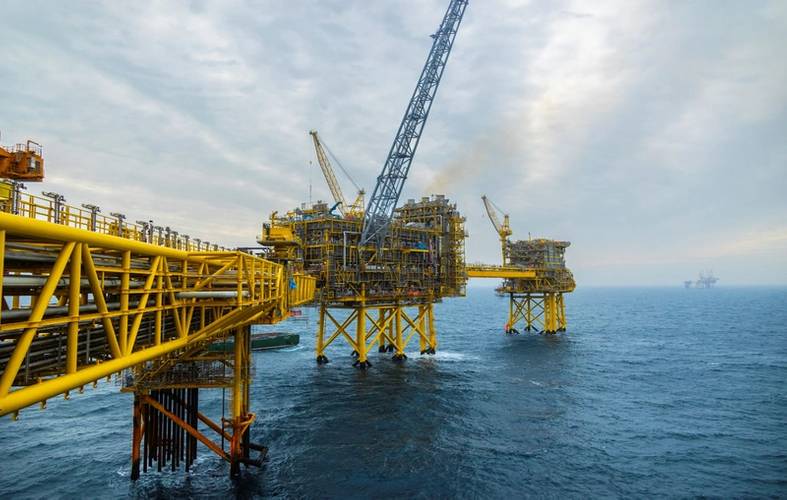Tyra II Production Successfully Restarted
The Tyra Redevelopment Project (Tyra II) has restarted production. At plateau, the Tyra hub will produce 5.7 million cubic meters of gas and 22,000 barrels of condensate per day.
TotalEnergies operates the Tyra field on behalf of Danish Underground Consortium, a partnership between TotalEnergies (43.2%), BlueNord (36.8%) and Nordsøfonden (20%).
The Tyra Redevelopment Project is, to date, the largest project carried out on Danish Continental Shelf with the fabrication and installation of eight new platform topsides. With production from Tyra, Denmark will not only be self-sufficient but also a net-exporter of natural gas to Europe.
The production from the new Tyra facilities is expected to more than double BlueNord’s net production to over 50 mboepd by the end of 2024 and unlock gross reserves of more than 200 mmboe. In addition, redeveloped Tyra will significantly decrease field opex and emissions intensity, and at the same time extend its field life by 25 years, only constrained by the 2042 license expiry.
Ramp-up is expected to last four months.
Discovered in 1968 by Maersk Oil, Tyra is located 225 kilometres west of the coast of Esbjerg. In September 2019, gas production was suspended to enable the redevelopment of Tyra. Following the decommissioning of the previous Tyra facilities, 8 new platform topsides, 2 jackets and 6 bridges were installed. As part of this redevelopment project, 98.5% of the materials recovered from the retired installations have been reused or recycled.
Gas from the Tyra hub is delivered to Europe through two export pipelines to Nybro in Denmark and Den Helder in the Netherlands. Discovered in 1968 by Maersk Oil, Tyra is located 225 km west of the coast of Esbjerg. Source: Total Energies
Discovered in 1968 by Maersk Oil, Tyra is located 225 km west of the coast of Esbjerg. Source: Total Energies












